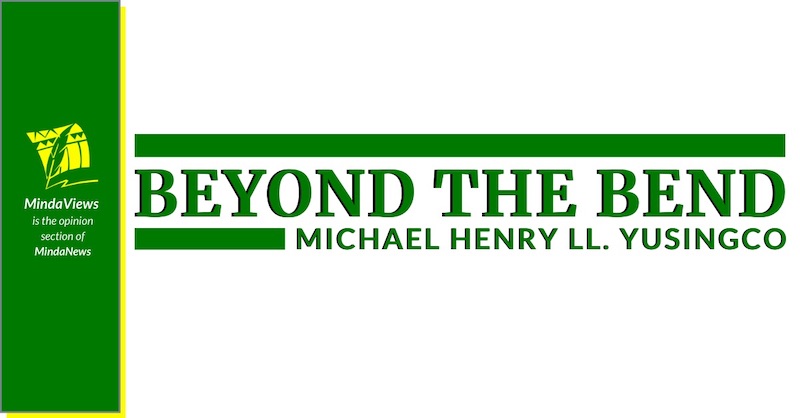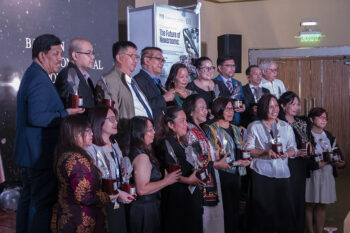
MELBOURNE (MindaNews / 11 June) — The Bangsamoro Autonomous Region in Muslim Mindanao or BARMM has been described as a “radical transformation” from its predecessor, the Autonomous Region in Muslim Mindanao (ARMM). The former is a creation of Republic Act No. 11054 or the Organic Law for the Bangsamoro Autonomous Region in Muslim Mindanao (hereafter referred to as BOL), while the latter came to be via the now superseded Republic Act No. 6734.
But while there are truly innovative features in the BOL, the promise of revolutionary change depends heavily on whether the new regional government of the BARMM can be a fulfilment of Article X of the 1987 Constitution. Indeed for this profound paradigm shift to occur from its current treatment as merely a regular local government unit (LGU) to its true constitutional designation as a distinct political subdivision of the state.
Article X is essentially divided into two parts. Sections 1 to 14 is the first part covering regular LGUs such as provinces, cities, municipalities and barangays. On the other hand, Sections 15 to 21 cover Autonomous Regions only and refer specifically to Muslim Mindanao and the Cordillera. Therefore, the regional
government apparatus for these two autonomous regions is a totally idiosyncratic constitutional prescription.
Furthermore, the Supreme Court in the case of Disomangcop vs. Datumanong [G.R. No. 149848, November 25, 2004] ruled that:
“The idea behind the Constitutional provisions for autonomous regions is to allow the separate development of peoples with distinctive cultures and traditions. These cultures, as a matter of right, must be allowed to flourish.”
More to the point, the Court also ruled that:
“The objective of the autonomy system is to permit determined groups, with a common tradition and shared social-cultural characteristics, to develop freely their ways of life and heritage, exercise their rights, and be in charge of their own business. This is achieved through the establishment of a special governance regime for certain member communities who choose their own authorities from within the community and exercise the jurisdictional authority legally accorded to them to decide internal community affairs.”
It is worth recalling that the purpose of the BOL is to fulfil the mandate of the Comprehensive Agreement on the Bangsamoro (CAB) to strengthen regional autonomy for the Bangsamoro.
The CAB specifically provides that the relationship between the Central Government and the Bangsamoro Government shall be asymmetric. This prescription aims to distinguish the Bangsamoro regional government with other local government units. Meaning, its relationship with the national government should be fundamentally different from the relationship of other local governments to the central bureaucracy.
Whilst the word “asymmetric” to describe the relationship of the national government and the Bangsamoro government is not found in the BOL, the statute itself is proof that the Bangsamoro regional governance infrastructure vastly differs from the current local government structure under the Local Government Code of 1991.
First of all, the BOL establishes a ministerial regional government structure with a strong mandate for a disciplined political party system. This framework is unique to the Bangsamoro. And when employed for the purpose it was designed for, the parliamentary structure makes maintaining good governance over region more probable.
Moreover, the BOL also institutes a robust fiscal autonomy regime, the centrepiece of which is the block grant. This fiscal framework is also unique to the Bangsamoro and when utilized properly and strategically, can indeed lead the Bangsamoro to genuine self-governance.
Therefore, the word “asymmetric” may be absent in the BOL, but the regional governance structure established by this law is patently different from the regular local government apparatus. The political and fiscal autonomy of the Bangsamoro government is clearly more substantial that other local governments.
Crucially, given its access to the block grant, it is paramount for the Bangsamoro government to have a firmer claim on its autonomy than the regional government it replaced. Otherwise, this vastly increased fund transfer may also fail to deliver the development outcomes many of the people in the Bangsamoro region are hoping for.
In sum, the distinctive institutions established by the BOL that are cited here require both the national government and the Bangsamoro community to view the new BARMM regional government not as a regular LGU. Indeed, both sides must internalize this judicial admonition in the Disomangcop case:
“Regional autonomy refers to the granting of basic internal government powers to the people of a particular area or region with least control and supervision from the central government.”
Correspondingly, it is truly worrisome to see how easily some BARMM leaders and groups subscribe to the view that the BOL can be amended by Congress without a plebiscite. Even justifying this myopic perspective as being grounded in the BOL itself.
It is worth noting again that the BOL is a mini-constitution for the BARMM. Hence, the Bangsamoro polity should be fiercely sceptical about moves to change it without their consent.
It must be noted as well that when the Bangsamoro electorate ratified the BOL in 2019, they had a clear intention and expectation of electing their parliament in 2022. And it cannot be overemphasized enough that electing a Bangsamoro parliament is integral to the Bangsamoro’s right to self-determination.
The coming to fruition of the Bangsamoro Parliament signifies the “establishment of a new Bangsamoro political entity that will protect individual and collective rights, and be truly democratic, representative of the diversity of the populace, and accountable to the communities therein” (Principles of Implementation, CAB).
Therefore, it only seems fair that the Bangsamoro electorate should have a say over a law that aims to reschedule the election of the Bangsamoro Parliament from 2022 to 2025.
More importantly, the Bangsamoro polity must be clear-eyed about allowing Congress to unilaterally amend the BOL. If such a move is welcomed now, then it can set a precedent that would permit the national government to institute changes in the region even without approval from the Bangsamoro community. Thus, opening a path for a compromised regional autonomy to once again rear its ugly head in the BARMM.
(MindaViews is the opinion sectin of MindaNews.
Michael Henry Ll. Yusingco, LL.M is a Senior Research Fellow of the Ateneo Policy Center for their Access Bangsamoro project)







